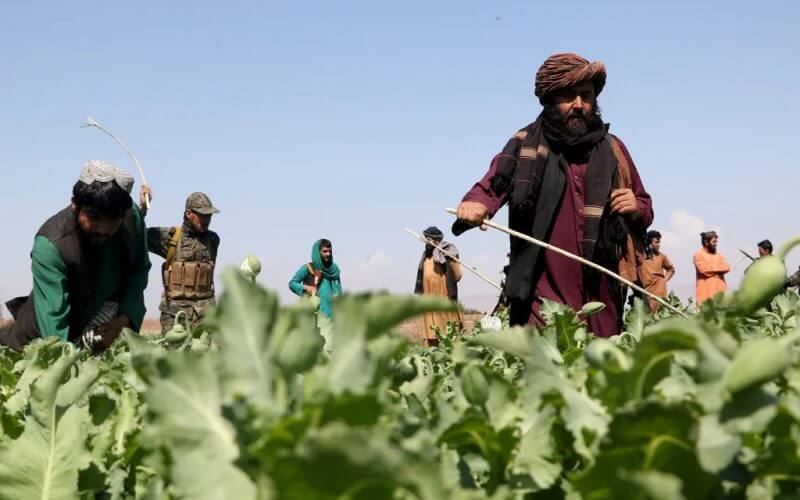Europe’s heroin market could soon be in for a supply shock, and experts fear the gap could be filled by something much worse.
Almost all heroin consumed in Europe comes from Afghanistan, where the Taliban have imposed a ban on poppy cultivation that will take effect in the coming weeks.
The likely poppy shortage could make it more profitable for criminals to manufacture synthetic opioids such as fentanyl, to be sold to desperate addicts denied their hit of heroin.
That in turn presents a serious public health risk, as synthetic opioids tend to be much stronger than natural heroin — 50 times stronger in the case of fentanyl. That means it’s much easier to overdose: fentanyl claims tens of thousands of lives in America each year.
The Taliban banned poppy cultivation in April 2022, after wresting back control of Afghanistan from the US-backed government in 2021. The 2022 crop was exempted, meaning the results will start to be seen with this year's April harvest. It takes between a year and 18 months for the harvest to reach the European market as heroin, giving governments until next year before the impact starts to be felt.
Related Story: Congress Considering Resolution to Use Military Force Against Mexican Drug Cartels










